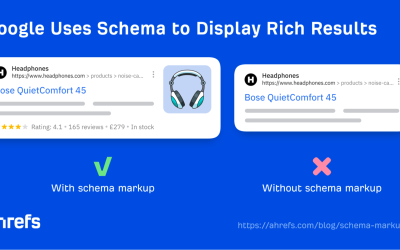Table of Contents
- 1 Ignoring keyword research
- 2 Not optimizing on-page elements
- 3 Neglecting website speed and mobile optimization
- 4 Not creating quality and relevant content
- 5 Neglecting link building
- 6 Over-optimizing with black hat SEO tactics
- 7 Ignoring technical SEO issues
- 8 Neglecting local search optimization
- 9 Not monitoring and analyzing SEO performance
- 10 Ignoring social media and user signals
So you’ve finally built your website and you’re ready to conquer the online world, but hold on a second! Before you proceed, it’s crucial to understand the common SEO mistakes that can hinder your website’s success.
Whether you’re a beginner or an experienced webmaster, this article will shed light on some of the most prevalent SEO blunders you should avoid at all costs. From neglecting keyword research to ignoring the importance of user experience, we’ll explore the pitfalls that can sabotage your website’s visibility and ranking on search engines.
Stay tuned and arm yourself with the knowledge to navigate the complex world of SEO with confidence.
Ignoring keyword research
When it comes to SEO, keyword research is crucial. It is the foundation of any successful SEO strategy. However, many website owners make the mistake of ignoring keyword research or not conducting it properly. By not understanding what keywords people are using to search for your products or services, you are missing out on valuable opportunities to attract targeted organic traffic to your website.
Instead of neglecting keyword research, take the time to explore and analyze the keywords that are relevant to your business. Look for specific keywords that have high search volume and low competition. Targeting broad keywords may seem appealing, but they are often highly competitive and can be difficult to rank for. On the other hand, long-tail keywords are more specific and less competitive, making it easier for you to rank higher in search engine results pages (SERPs) and attract more qualified traffic.
Not optimizing on-page elements
Optimizing your on-page elements is another important aspect of SEO that many website owners overlook. On-page elements include title tags, meta descriptions, header tags, and image alt tags. Neglecting these elements can have a negative impact on your website’s visibility and ranking in search engines.
Title tags and meta descriptions play a vital role in conveying what your web page is about to both search engines and users. They should be compelling, concise, and include relevant keywords. Header tags, such as H1, H2, and H3, help search engines understand the hierarchy and structure of your content. By using header tags correctly, you can improve the readability and organization of your web pages.
Image alt tags are used to describe the content of an image to search engines. By optimizing image alt tags with relevant keywords, you can improve the accessibility of your website for visually impaired users and enhance your chances of appearing in image search results.
Neglecting website speed and mobile optimization
In today’s fast-paced digital world, website speed and mobile optimization are crucial factors for both user experience and SEO. However, many website owners fail to prioritize these aspects of their website’s performance.
A slow-loading website can lead to a high bounce rate, and search engines take into account user behavior metrics like bounce rate when determining search rankings. Users expect websites to load quickly, and if your website takes too long, they will likely abandon it and seek information or products elsewhere. To improve website speed, optimize your images, use caching, minimize HTTP requests, and choose a reliable hosting provider.
Mobile optimization is equally important, as the majority of internet users now access websites on mobile devices. If your website is not optimized for mobile devices, it will have a negative impact on user experience and search engine rankings. Implement a responsive design that adjusts to different screen sizes, optimize your website for mobile page speed, and ensure buttons and text are large enough to be easily tapped with a finger.
Not creating quality and relevant content
Content is king in the world of SEO. However, many website owners make the mistake of publishing thin or duplicate content, ignoring user intent and search intent, and not including target keywords in their content.
Thin or duplicate content refers to content that is of low quality, lacks depth, or is copied from other websites. Search engines prioritize websites that provide informative, unique, and valuable content to users. By publishing thin or duplicate content, you risk being penalized by search engines and losing credibility with your audience.
It’s important to understand user intent and search intent when creating content. User intent refers to the reason behind a user’s search query, while search intent refers to the type of content that best satisfies that search query. By aligning your content with user intent and search intent, you can ensure that your website delivers the information or solution that users are looking for.
Including target keywords in your content is also crucial for SEO. Conduct keyword research to identify relevant keywords related to your products, services, or industry. Then, incorporate these keywords naturally into your content, ensuring that they flow seamlessly and enhance the readability of your content.
Neglecting link building
Link building is an essential aspect of SEO, but many website owners neglect to invest time and effort into acquiring high-quality backlinks, internal linking, and optimizing anchor text.
Backlinks are links from other websites that point to your website. Search engines consider backlinks as votes of confidence, indicating that your website is trustworthy and authoritative. High-quality backlinks from reputable websites can significantly improve your search engine rankings. Focus on obtaining backlinks from relevant and authoritative websites in your industry through outreach, guest blogging, and creating valuable content that others want to link to.
Internal linking refers to the practice of linking to other pages within your website. It helps search engines understand the structure of your website, establishes a hierarchy of importance for your pages, and distributes link equity. By strategically interlinking your pages, you can improve the visibility and indexing of your content.
Optimizing anchor text is another important aspect of link building. Anchor text is the clickable text of a hyperlink. It is essential to use descriptive and relevant anchor text that gives users and search engines a clear idea of what the linked page is about. Avoid over-optimizing anchor text with exact match keywords, as this can appear unnatural and harm your SEO efforts.
Over-optimizing with black hat SEO tactics
In an attempt to achieve quick results, some website owners resort to over-optimizing their websites using black hat SEO tactics. However, these tactics are against search engine guidelines and can lead to severe penalties and damage to your website’s reputation and visibility in search results.
Keyword stuffing and content spinning are two common black hat SEO tactics to avoid. Keyword stuffing involves excessively repeating keywords in an unnatural manner, which can make your content unreadable and considered spammy by search engines. Content spinning refers to creating low-quality content by using automated software to generate multiple versions of the same content, often changing words or sentence structure slightly. This technique can lead to duplicated or poorly written content, negatively affecting the user experience.
Buying low-quality backlinks is another black hat SEO tactic to steer clear of. Purchasing backlinks from spammy or irrelevant websites may provide a temporary boost in rankings, but search engines are becoming increasingly adept at detecting these unnatural link patterns. Instead, focus on acquiring high-quality, organic backlinks from reputable sources.
Cloaking and sneaky redirects involve showing different content to search engines and users, misleading either party for manipulative purposes. These tactics are blatant violations of search engine guidelines and can result in severe penalties, including complete removal from search engine results.
Ignoring technical SEO issues
Technical SEO is an often-overlooked aspect of optimizing a website, but it plays a crucial role in ensuring that search engines can crawl, index, and understand your website correctly. Neglecting technical SEO issues can hinder your website’s visibility and performance in search engine results.
Optimizing website structure and URL hierarchy is essential. A well-organized website structure helps search engines navigate and understand your content effectively. Use descriptive URLs that include relevant keywords to make it easier for search engines and users to identify the content of your pages.
Crawl errors and broken links can negatively impact your website’s SEO. When search engines encounter crawl errors or broken links, they may interpret them as signs of poor website maintenance. Regularly monitor and fix any crawl errors, and ensure that all links on your website are working correctly.
Improperly using canonical tags can also harm your SEO efforts. Canonical tags are used to indicate the preferred version of a web page when there are duplicate or similar versions of it. Incorrectly implementing canonical tags can confuse search engines and lead to duplicate content issues. Make sure to use canonical tags correctly to consolidate the SEO value of similar pages and avoid duplicate content penalties.
Neglecting local search optimization
For businesses targeting a local audience, neglecting local search optimization is a significant mistake. Local search optimization involves optimizing your website and online presence to ensure visibility in location-based searches.
Claiming and optimizing your Google My Business listing is essential for local search optimization. Google My Business allows you to provide accurate information about your business, including your address, phone number, and operating hours. By claiming and optimizing your listing, you can increase your chances of appearing in local search results, Maps, and the Google Knowledge Panel.
Ignoring local citation and directory listings is another common mistake. Local citations are mentions of your business’s name, address, and phone number on other websites, such as online directories, review sites, and social media platforms. Consistent and accurate local citations help search engines understand the relevance and location of your business. Ensure that your business information is up to date and consistent across all citation sources.
Not targeting local keywords is another missed opportunity. Incorporate locally relevant keywords into your website content, meta tags, and title tags to increase your visibility in local searches. For example, if you are a plumber in New York City, target keywords like “plumber in NYC” or “emergency plumbing services in NYC” to attract local customers.
Not monitoring and analyzing SEO performance
SEO is an ongoing process, and failing to monitor and analyze your SEO performance can prevent you from identifying opportunities for improvement and understanding the effectiveness of your strategies.
Using tools like Google Analytics or other SEO tools is crucial for tracking and analyzing your website’s performance. These tools provide valuable insights into organic search traffic, user behavior on your website, and the performance of specific pages or keywords. By understanding how users are finding and interacting with your website, you can make data-driven decisions to optimize your SEO efforts.
Ignoring organic search traffic and ranking fluctuations is another mistake. Pay attention to changes in your organic search traffic and rankings, as they can indicate the impact of algorithm updates, your competition’s efforts, or potential technical issues. Regularly monitoring your performance can help you identify trends or anomalies and take appropriate actions.
Neglecting conversion tracking and user engagement metrics is a missed opportunity to understand the effectiveness of your website in converting visitors into customers or achieving other desired outcomes. Set up conversion tracking to measure the conversions generated through organic search and assess the engagement metrics, such as bounce rate, time on page, and click-through rates. By analyzing these metrics, you can identify areas for improvement and optimize your website’s performance.
Social media and user signals can provide valuable insights and opportunities to enhance your SEO efforts. However, many website owners overlook the importance of leveraging social media, user reviews and ratings, as well as optimizing for click-through rates and SERP snippets.
Social media platforms can amplify your SEO efforts by increasing brand awareness, driving traffic to your website, and generating backlinks. By sharing your content on platforms like Facebook, Twitter, LinkedIn, and Instagram, you can attract more visitors to your website and potentially earn social shares and backlinks from influential users or websites.
User reviews and ratings can also impact your SEO. Positive reviews and high ratings not only build trust among potential customers but also contribute to higher visibility in search results. Encourage satisfied customers to leave reviews, respond to reviews promptly, and monitor and manage your online reputation.
Optimizing for click-through rates (CTRs) and SERP snippets can drive more organic traffic to your website. A compelling meta description that aligns with user intent and calls to action can increase the chances of users clicking through to your website. Optimizing your title tags and meta descriptions to include relevant keywords and persuasive language can boost your CTRs, leading to higher organic traffic and improved rankings.
In conclusion, avoiding these common SEO mistakes is essential for achieving optimal results and improving your website’s visibility, organic traffic, and conversions. By conducting keyword research, optimizing on-page elements, prioritizing website speed and mobile optimization, creating quality and relevant content, practicing effective link building, avoiding black hat SEO tactics, addressing technical SEO issues, optimizing for local search, monitoring SEO performance, and leveraging social media and user signals, you can maximize your SEO efforts and increase your chances of success in the competitive online landscape.














